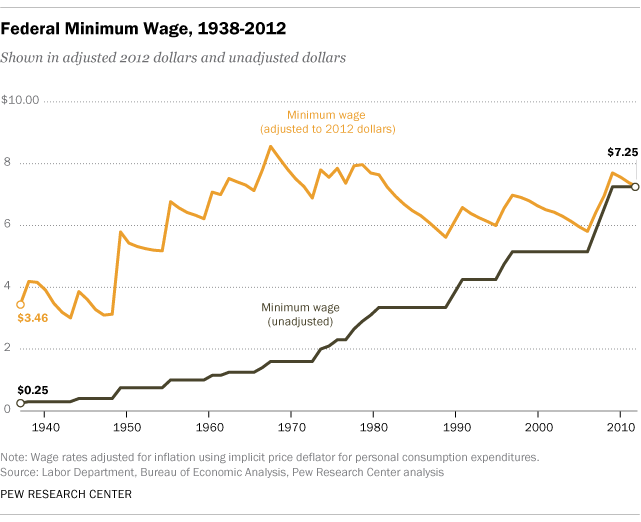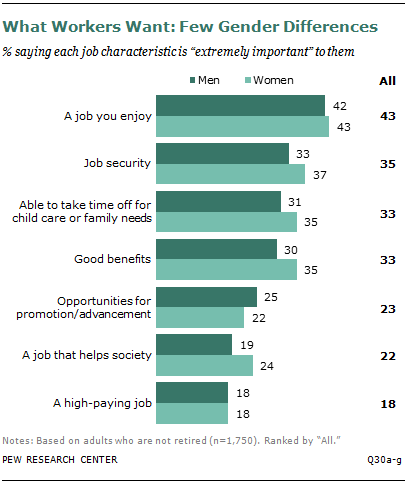Every new year means adding thousands of new state laws to the books. This year’s wide range includes everything from tanning bed age limits (Illinois), to a new ban on selling shark fins (Delaware). While most new laws represent incremental change, sometimes state laws can also signal broader movement on a public policy issue or indicate a regional or demographic shift in public opinion. We took a look at a few of the new state laws that go into effect Jan. 1 and the national public opinion on the related issues.
11. In 2014, Colorado will become the first state to allow the recreational sale of marijuana. (Washington state will join later in the year.)
A Pew Research Center survey in April this year found that, for the first time, a majority of Americans (52%) think marijuana use should be legalized. While younger Americans are more likely to support legalizing the drug, support among Baby Boomers has also risen over time.
22. Four states, all located in the Northeast, will raise the minimum wage on Jan. 1 to at least 75 cents more than the federal minimum of $7.25 per hour. (The states include Connecticut, $8.70/hour; New Jersey, $8.25/hour; New York and Rhode Island, $8/hour.) With these additions, 21 states will have a higher minimums than the federal requirement in 2014.

Some Democrats tried in 2013 to push a bill raising the minimum wage to $10.10 per hour and party leaders have said they want to continue to push the issue in 2014. Though raising the minimum wage is broadly popular, there are clear differences between Republicans and Democrats. A Pew Research Center survey conducted in February 2013 found that 71% of Americans favored an increase in the federal minimum to $9.00 per hour from $7.25.
But while large majorities of Democrats (87%) and independents (68%) said they favored such an increase, Republicans were split with 50% in favor and 47% opposed.
33. Connecticut enacts new gun laws on Jan. 1 in response to the school shootings at Sandy Hook Elementary School just over a year ago, when a gunman killed 20 children and six adults. The new laws require registration of all assault weapons and large-capacity ammunition magazines purchased before April 2013 and the creation of a new statewide registry to track parolees.

A Pew Research Center poll after the Sandy Hook shootings found a modest uptick in the percentage of Americans saying it’s more important to control gun ownership than protect the right of Americans to own guns. But a bill that proposed tighter background checks failed in the Senate in April and by May the uptick in support for gun control fell back down. According to an analysis of state gun laws by The New York Times, more states have loosened gun restrictions than tightened them since the Connecticut school shooting.
44. Rhode Island will become the third state to provide paid leave for workers to care for an infant or seriously ill relative. The new law would allow employees to take several weeks of paid leave, not with state money but from a pooled employee fund. California and New Jersey have similar laws, but federal efforts in Congress have gotten little traction.

While it didn’t ask specifically about parental leave, the Pew Research Center’s new survey on women and men in the workplace did find that about a third of both men and women said the ability to take time off for family needs was “extremely important” to them in a job. An analysis of global data compiled by the OECD shows that, compared with 37 other nations, the U.S. is an outlier when it comes to paid leave — it is the only nation that does not offer federal paid leave for new parents. (Although many large companies in the U.S. provide some paid leave to employees.)
55. Although it’s the result of court action rather than new legislation, just before the New Year, two more states — Utah and New Mexico — became the 17th and 18th states to allow same-sex marriage. In June 2014, Illinois’ same-sex marriage law will go into effect. Meanwhile, 32 states have laws that prohibit same-sex marriages. After the U.S. Supreme Court struck down the Defense of Marriage Act, many advocates on both sides of the issue have shifted the legal battle back to the states.

Pew Research Center has been tracking national public opinion on the issue of same-sex marriage for some time. In 2013, for the first time, a majority of Americans (51%) said they favored same-sex marriage while 42% opposed it. Moreover, we found that 72% of Americans say that legal recognition of same-sex marriage is “inevitable.” This includes 85% of gay marriage supporters, as well as 59% of its opponents.
66. Arkansas’ new voter identification law, which goes into effect Jan. 1, requires voters to show state or federal photo identification at the ballot box. There are 34 states that have some kind of voter ID law, although not all have been enacted because of court challenges, according to the National Conference of State Legislatures.

According to a Pew Research Center survey in 2012, a majority (77%) of all registered voters support photo ID laws, including 71% of Latino registered voters. The survey also found an overwhelming majority (97%) of Latinos said they were confident that they had the identification necessary to vote. That compares with 98% of all registered voters who said the same ahead of the 2012 presidential elections.



